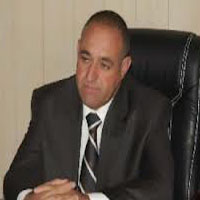Arsal mayor Ali al Hujairi told al Jumhouriah newspaper that “the security situation in Arsal remains tense because Hezbollah militants have besieged the town and have set up checkpoints on all roads and intersections leading to the town to intimidate the citizens by inspecting all the incoming and outgoing vehicles
He added: “They are forcing people out of their cars, demanding to see their ID’s and insisting on knowing their final destinations without showing any respect for the law of the land nor to the citizens of the this country.
However mayor Hujairi stressed that “all of these actions will not scare the Arsali people , because they are so accustomed to ruthless behavior of the Hezbollah party people.”


Leave a Reply
You must be logged in to post a comment.